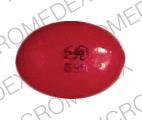Polaramine Repetabs Interactions
There are 263 drugs known to interact with Polaramine Repetabs (dexchlorpheniramine), along with 4 disease interactions, and 1 alcohol/food interaction. Of the total drug interactions, 9 are major, 252 are moderate, and 2 are minor.
- View all 263 medications that may interact with Polaramine Repetabs
- View Polaramine Repetabs alcohol/food interactions (1)
- View Polaramine Repetabs disease interactions (4)
Most frequently checked interactions
View interaction reports for Polaramine Repetabs (dexchlorpheniramine) and the medicines listed below.
- acetaminophen
- Airsupra (albuterol / budesonide)
- albuterol
- Allegra-D 12 Hour (fexofenadine / pseudoephedrine)
- Apidra SoloStar (insulin glulisine)
- aspirin
- Augmentin (amoxicillin / clavulanate)
- azelastine / fluticasone nasal
- Benicar (olmesartan)
- calcium citrate
- cephalexin
- Cialis (tadalafil)
- cinnamon
- ciprofloxacin
- Citrucel SF (methylcellulose)
- Claritin-D 12 Hour (loratadine / pseudoephedrine)
- Compazine (prochlorperazine)
- cyclobenzaprine
- Cymbalta (duloxetine)
- Dulera (formoterol / mometasone)
- Flagyl (metronidazole)
- fluticasone nasal
- gabapentin
- ibuprofen
- Indocin (indomethacin)
- Iron Fumarate (ferrous fumarate)
- Jardiance (empagliflozin)
- Lantus SoloStar (insulin glargine)
- lemon balm
- multivitamin with minerals
Polaramine Repetabs alcohol/food interactions
There is 1 alcohol/food interaction with Polaramine Repetabs (dexchlorpheniramine).
Polaramine Repetabs disease interactions
There are 4 disease interactions with Polaramine Repetabs (dexchlorpheniramine) which include:
More about Polaramine Repetabs (dexchlorpheniramine)
- Compare alternatives
- Reviews (1)
- Drug images
- Side effects
- Dosage information
- During pregnancy
- Drug class: antihistamines
- Breastfeeding
Related treatment guides
Drug Interaction Classification
| Highly clinically significant. Avoid combinations; the risk of the interaction outweighs the benefit. | |
| Moderately clinically significant. Usually avoid combinations; use it only under special circumstances. | |
| Minimally clinically significant. Minimize risk; assess risk and consider an alternative drug, take steps to circumvent the interaction risk and/or institute a monitoring plan. | |
| No interaction information available. |
See also:
Further information
Always consult your healthcare provider to ensure the information displayed on this page applies to your personal circumstances.


